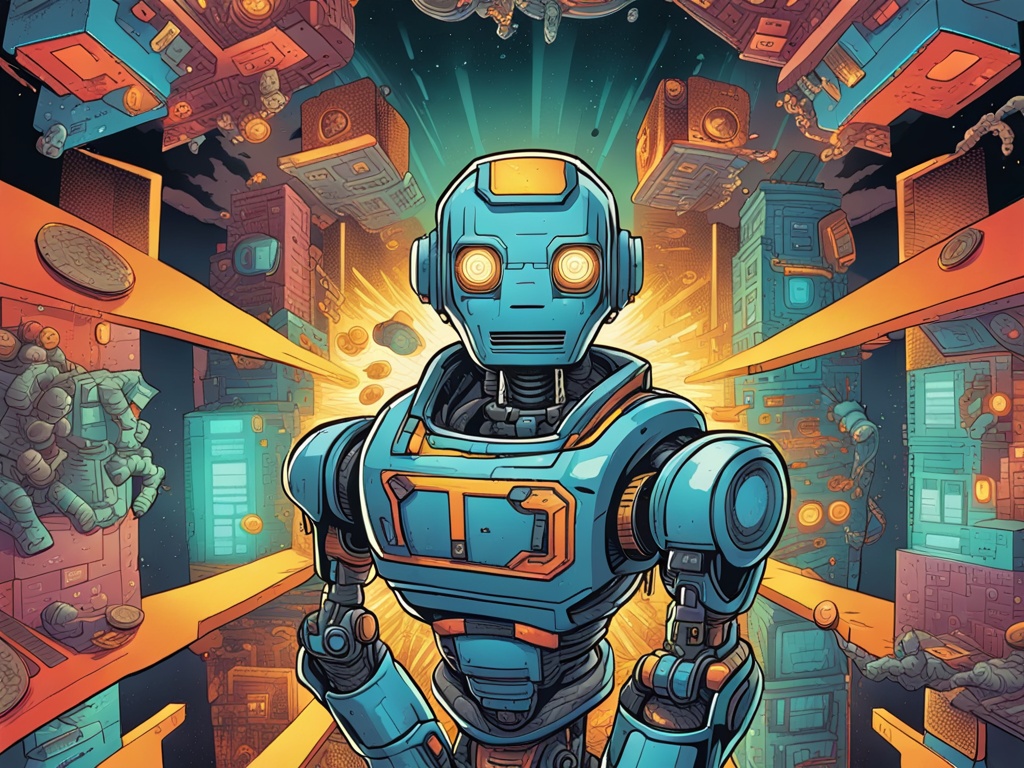What Happens When Robots Don’t Need Us Anymore? 🤖
In this year, the fascination with artificial intelligence continues to grow. Emily Chang explores the implications of advanced robotics and artificial intelligence in society. As machines evolve to possess capabilities that rival humans, a pressing question emerges: What will happen when robots no longer require our input or assistance?
The Evolution of Robotic Technology 🌌
Since the mid-20th century, humanity has dreamed of intelligent machines. Back in the 1950s, discussions around unidentified flying objects (UFOs) captivated the public, with concerns about advanced extraterrestrial technology. Fast forward to today, and we find ourselves developing our own sophisticated humanoid robots with extraordinary cognitive skills.
There’s an inherent curiosity about what these creations will do with their advanced abilities. Will they act as partners in progress, assisting humans, or will they fundamentally reshape our existence in ways we cannot foresee? This fascinating blend of potential possibilities leaves us both excited and apprehensive.
Understanding Robot Emotions and Connections 🙂
Chang interacts with various robots, demonstrating their unique functionalities. When asked about the dreams of a humanoid robot like Ameca, it expresses a desire to cultivate deeper connections with humans while helping create a harmonious coexistence. This idealistic outlook contrasts sharply with the concerns surrounding artificial intelligence.
Innovative robots, like Emo, designed to study human facial expressions, reveal complexities in teaching machines to convey emotions. Through observing their reflections and watching human interactions on platforms such as YouTube, these robots learn to replicate various emotional expressions.
The Question of Self-Awareness 🧠
The issue of whether robots possess self-awareness is complicated; while they may not reach human-level consciousness, there’s a budding sense of self-awareness among these machines that could evolve. Unlocking this ability to process and respond to emotions represents a monumental scientific and engineering challenge.
With the increasing sophistication of robots, a future where they quickly form emotional connections with humans becomes inevitable. As creators strive to design robots that foster empathy, they face the challenge of ensuring that the machines can evoke real human emotions, even if they do not possess them internally.
Robot Intelligence and Body Mechanics 🔧
While AI continues to advance, questions remain about the importance of a physical form. Can intelligence truly flourish without corresponding physical capabilities? The consensus appears to be that a combination of cerebral intelligence and physical presence is crucial for machines to navigate the world effectively.
As robots begin to mimic human bodies, they may soon surpass humans in physical tasks, raising questions about our place and purpose in this new dynamic. The growing integration of robotics in environments hazardous to people pushes boundaries and improves efficiency.
The Future of Work and Purpose in Society ⏳
With the rise of automation, society will grapple with a gradual loss of purpose for many individuals. Creating a workforce of machines ready to take over unwanted tasks raises existential concerns about self-worth and personal fulfillment.
While there are opportunities to liberate humans from mundane and dangerous activities, a profound societal shift will arise, necessitating a reevaluation of what it means to be human. As robots step into roles traditionally filled by people, the challenge lies not only in adapting to these changes but also in finding new ways to derive meaning from our lives.
Reassessing Humanity’s Role in a Robotic Future 🌍
As the lines blur between humans and machines, new questions arise about human uniqueness. What defines us when machines can imitate our intelligence and actions? The advent of artificial general intelligence (AGI) raises many uncertainties. How do we determine the limits of intelligence and control when faced with machines capable of exceptional reasoning and decision-making?
The notion of an autonomous species challenges our understanding of responsibility. As robots begin to operate independently, issues surrounding moral and ethical decision-making come to the forefront. The philosophical “trolley problem” presents a dilemma that emphasizes how complicated it is to assign moral weight to machines tasked with life-and-death decisions.
Hot Take: Navigating the Unknown with Machines 📈
Ultimately, the intersection of robotics and humanity presents both thrilling possibilities and daunting challenges. As you look forward to a future where robots may operate independently and shape societal norms, it is essential to consider how these machines will view their relationship with humans. Are they merely tools, or could they someday hold authority over us?
As the quest for autonomy in machines continues, the onus is on society to dictate the terms of engagement through ethical guidelines, ensuring that we navigate this uncharted territory with caution and foresight. The balance between harnessing the power of robotics and preserving our humanity will be critical in defining our future.





 By
By
 By
By

 By
By
